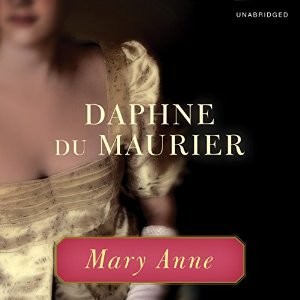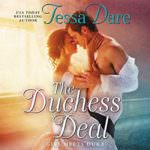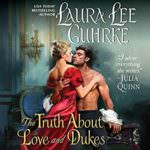Written in 1951, Mary Anne is the fictionalised account of the life of Mrs Mary Anne Clarke, who was the author’s great-grandmother, and who is famous principally for being the mistress of Frederick, Duke of York (second son of King George III).
Mary Anne Thompson was born in 1776 in the East End of London, and by her twenties, had become one of the most famous courtesans in London. Before I wrote this review, I looked her up on the internet, and quickly discovered that there are discrepancies between what is actually known of her early life, and how Ms du Maurier describes it – but as I’m reviewing the book rather than regurgitating a history lesson, it’s the author’s version I’m going to concentrate on.
Mary Anne appears to have been a precocious child, and is married young, to a handsome, seemingly well-to-do young stonemason, Joseph Clarke. Before long, the children start arriving – and Clarke is spending the majority of their income on drink. Before long the Clarkes are bankrupt and, with four young children to support, Mary Anne – who has already attracted the notice of a number of well-heeled and powerful men – sees a way to live well and provide for her family. She leaves Clarke and, following a number of affairs with prominent men, becomes the mistress of the Duke of York.
It’s a well-known fact that George kept his sons on a tight rein financially, and York was unable to furnish Mary Anne with funds sufficient to support the style in which he expected to live. She has to have a house in the best area of London for which she has to pay all expenses – it wouldn’t do to expect a royal prince to eat off anything less than the best silver or not have enough servants at his beck and call. Life as a royal mistress is expensive, and Mary Anne very soon has to find a way of making extra money to supplement the meagre income given to her by the duke.
His position as Commander-in-Chief of the Army provides those means when officers began to approach her to ask her to put in a good word with the duke, and are prepared to pay quite handsomely for her assistance. This continues for a number of years, until suddenly, Clarke reappears (Mary Anne had represented herself as a widow) and threatens to make a huge scandal if she does not return to him. The duke instantly cools towards her, not wanting anything to disturb his easy life, and soon after, he ends their relationship. When the small stipend he had promised her is never paid, and he reneges on his promises to help her children, Mary Anne, urged by the duke’s political enemies, testifies about her having brokered commissions and other military positions before the House of Commons, stating she had acted with the duke’s knowledge and compliance. I’m not sure if this was actually the case, but the duke was forced to resign his position as Commander-in-Chief as a result, although he was later re-instated. Unfortunately for Mary Anne, however, in her attempt to extract what she considers to be a decent sum of money in exchange for her suppression of the duke’s letters, she overreaches herself and has to spend time in prison. After that, she moves to France, where she lives until her death in 1852.
I found the first two thirds of the book to be the most compelling, as we follow Mary Anne from her childhood through to her life with the Duke of York, which is very well depicted. The opening, in which the important men in her life reminisce about her is absolutely beautiful – and worth revisiting when the book is finished, as we have now “lived through” some of the events referenced therein.
The latter part, which is largely taken up with the court case, and which presumably makes use of actual testimonies, isn’t uninteresting, but it does slow the pacing a little and I found my attention wandering on occasion. Nonetheless, Mary Anne is a compelling portrait of an ambitious woman who did what she had to do in order to survive in a man’s world and provide for her family. Born into poverty, she found a way out of it, and grabbed it with both hands.
Carole Boyd’s narration is absolutely excellent in terms of both narrative and characterisation. Her voice falls naturally into the mezzo range so she is able to perform the male characters convincingly without sounding strained, and her portrayal of Mary Anne herself is superb, her bright, musical tones expertly convening the backbone of steel that lies beneath the coquettish exterior. All the characters are convincingly portrayed according to sex and class, although there were times, here and there, where some of the male characters sounded rather similar. It was never a problem, however, as those similarities are limited to men who never appear in the same scenes together, so there is no problem working out who is speaking. Her interpretation of the Duke of York paints him as a large, bluff man who likes his home comforts, while Mary Anne’s long-term friend and lover, William Dowler, is more softly spoken, a devoted and kind man who never stopped caring for her no matter what.
My one real issue with the audiobook is with the production. A look at Audible shows this to have originally been released in 2005,while the production copyright on the audio itself is 2015. Whatever the case, when I first began listening, I was struck by how treble-heavy the sound was, and I’m not sure if this improved or I just got used to it. There are a few places where there is a sudden hike in volume, and others where there seems to be an audible “drop-in” (an editorial technique whereby a mistake is corrected by “dropping in” a re-recorded portion of text). Fortunately neither of these things happened often enough for it to have completely ruined my listening experience, but I remember one particular point at which the volume change was so great as to have almost made me jump!
Those problems and the pacing issues apart, however, I did enjoy listening to Mary Anne, and would definitely recommend it to anyone interested in biographical fiction. It’s an oddity among the rest of Daphne du Maurier’s fiction, and is a book, it seems, she wasn’t especially fond of, but I found it fascinating, and often smiled at Mary Anne’s down-to-earth attitude to sex and the practical manner in which she deals with her suitors:
“I came to wish you goodnight.”
She knew what that meant—she’d been through it dozens of times. Not with his Radical Lordship, but with others. All aboveboard for five minutes, a stroking of hands, murmurs and whispers; and then a hurried request. Best get it over and done with, then pack him off home. Pretend an ecstatic fatigue—it generally worked. He’d slip off to bed believing he’d conquered the world.
Caz
Narration: A-
Book Content: B
Steam Factor: You can listen out loud
Violence: None
Genre: Historical Biographical Fiction
Publisher: Hachette Audio
Mary Anne was provided to AudioGals by Hachette Audio for review.





3 thoughts on “Mary Anne by Daphne du Maurier”
Comments are closed.